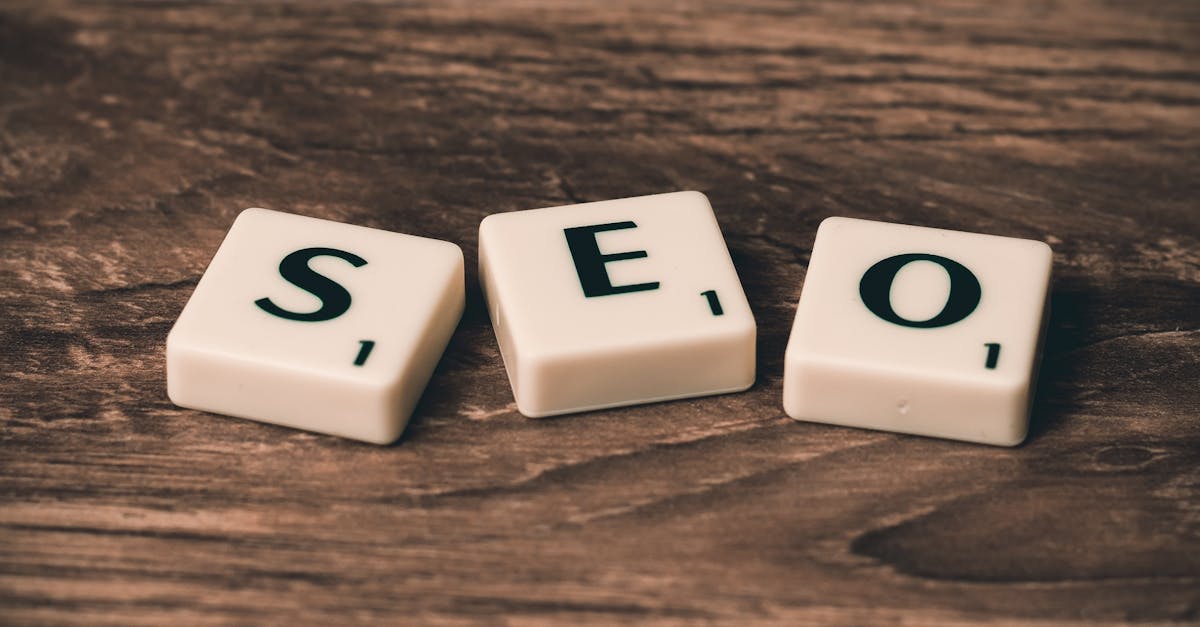
Table Of Contents
Common Misconceptions About PPC
Pay-Per-Click (PPC) Advertising often faces scepticism from businesses that view it as a gamble. Many believe that a significant budget is required to see real results, leading to the misconception that only large corporations can benefit from this model. However, effective PPC campaigns can be tailored to fit any budget. Smaller businesses can still achieve meaningful reach and engagement with careful planning and strategic keyword targeting.
Another common misconception is that PPC is a short-term solution that doesn't generate lasting value. This viewpoint overlooks the array of data and insights gained from running campaigns, which can inform broader marketing strategies. Additionally, while organic growth takes time, PPC can complement these efforts. Leveraging analytical tools can provide a clearer picture of customer behaviour, allowing businesses to refine their approach regardless of budget constraints.
Debunking Myths Surrounding Paid Advertising
Pay-Per-Click (PPC) Advertising is often misunderstood as being effective only for large businesses with extensive budgets. This perception can deter smaller companies from exploring its potential benefits. In reality, PPC can be tailored to fit various budgets and business sizes. With proper keyword targeting and ad optimisation, even modest investments can yield significant returns. Businesses can effectively compete by focusing on niche markets and leveraging geolocation targeting.
Another common myth is that PPC guarantees instant results. While it provides quicker visibility than organic methods, success requires ongoing optimisation and monitoring of campaigns. Many factors influence the effectiveness of PPC, including ad copy, audience targeting, and landing page quality. Businesses need to commit to refining their strategies and testing different approaches to realise their full potential. Understanding this aspect helps demystify the process and encourages more informed decisions regarding paid advertising.
Case Studies of Successful PPC Campaigns
Numerous brands have successfully harnessed the power of Pay-Per-Click (PPC) Advertising to reach targeted audiences and boost their bottom line. A notable example is a local Australian retailer that specialised in home décor. By implementing a well-structured PPC campaign, the retailer saw a 120% increase in website traffic and a significant surge in online sales within just three months. The key to this success lay in their effective keyword strategy and optimised ad design that resonated with their target market.
Another impressive case involves a service-based business that sought to generate leads for its plumbing services. Through a combination of geo-targeting and tailored ad copy, the company managed to reduce its cost per lead significantly. Pay-Per-Click (PPC) Advertising allowed them to focus on high-converting keywords while eliminating wasted spend on irrelevant searches. The results were clear, with a 40% increase in qualified leads, demonstrating the potential for PPC to yield substantial returns.
Learning from Effective Strategies
Successful PPC campaigns often utilise a blend of targeted keywords and compelling ad copy. Advertisers need to conduct thorough keyword research to understand what potential customers are searching for. Crafting ads that resonate with the audience can enhance click-through rates and conversion rates. Optimising landing pages in connection with the ads further ensures a seamless user experience, leading to higher chances of achieving marketing goals.
Another effective strategy relates to continuous monitoring and adjustment of campaigns. Analysing data allows advertisers to identify which ads perform well and which need improvement. A/B testing different versions of ads can provide insights into the most appealing elements. This dynamic approach ensures that Pay-Per-Click (PPC) Advertising efforts remain relevant, engaging, and effective, ultimately maximising return on investment.
Alternatives to PPC Advertising
Many businesses seek cost-effective ways to promote their products and services without relying solely on Pay-Per-Click (PPC) advertising. One popular alternative is search engine optimisation (SEO), which focuses on improving a website’s visibility in organic search results. By optimising content, utilising relevant keywords, and enhancing the overall user experience, companies can attract traffic without incurring the costs associated with PPC campaigns. This approach not only builds authority with search engines but also fosters long-term relationships with customers.
Social media marketing represents another viable option. Platforms such as Facebook, Instagram, and LinkedIn allow businesses to engage with their audience, share content, and promote products organically. By creating valuable content and participating in conversations, brands can develop a loyal following without direct payment for clicks. While these methods may require time and effort, they can yield substantial results and provide a strong return on investment, complementing or even replacing Pay-Per-Click (PPC) advertising strategies.
Exploring Organic Marketing Methods
Organic marketing methods offer a valuable alternative to Pay-Per-Click (PPC) advertising, focusing on building sustainable relationships with audiences over time. Strategies such as search engine optimisation (SEO), content marketing, and social media engagement can help businesses attract and retain customers without direct costs per click. By creating high-quality content that addresses customer needs, companies can boost their visibility and generate organic traffic, establishing authority within their niche.
Another effective approach is leveraging social media platforms to foster community interaction. Engaging with followers through authentic posts, discussions, and user-generated content enhances brand loyalty. While organic methods may require a longer timeframe to yield results compared to the instant visibility of PPC, they often lead to a more substantial and loyal customer base. The cumulative effect of consistent engagement can be significantly beneficial for businesses aiming to grow sustainably.
FAQS
What are PPC ads?
PPC stands for Pay-Per-Click advertising, a model where advertisers pay a fee each time one of their ads is clicked. It’s a way to buy visits to your site rather than attempting to earn those visits organically.
How do PPC ads work?
PPC ads work by placing bids on keywords relevant to your business. When users search for those keywords, your ad may appear. You only pay when someone clicks on your ad, hence the name.
Are PPC ads expensive?
The cost of PPC ads can vary widely depending on factors such as the competitiveness of the keywords you are targeting, your industry, and your bid strategy. While some keywords can be quite costly, effective campaign management can optimise costs.
Can small businesses benefit from PPC advertising?
Yes, small businesses can benefit significantly from PPC advertising. With a well-targeted campaign, they can reach specific audiences quickly and effectively, driving traffic and potential customers without the need for a large marketing budget.
What are some common misconceptions about PPC advertising?
Common misconceptions include the belief that PPC is only for large businesses, that it guarantees instant success, or that it's too complicated to manage. In reality, PPC can be effective for all business sizes, requires ongoing optimisation, and can be managed with various tools and resources.

















































